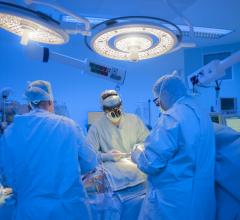April 16, 2008 - In a recent study conducted by Lund University Hospital, Sweden, the effect of induced hypothermia prior to reperfusion was shown to significantly reduce overall myocardial infarct size (a measure of tissue damage in the heart) and protected the heart from other injury.
Cardium Therapeutics and its operating unit InnerCool Therapies said this week the findings are very positive from the preclinical study, demonstrating a new and expanded benefit of early rapid hyperthermia for the treatment of acute myocardial infarction. The findings were published online by BioMed Central (BMC) Cardiovascular Disorders (2008, 8:7, April 10, 2008).
The study involved cooling induced by a combination of cold saline infusion along with the use of InnerCool’s endovascular Celsius Control System. The study used a closed-chest porcine heart attack model in which the coronary artery supplying the heart muscle was initially blocked and later reopened, as occurs in patients after a heart attack or acute myocardial infarction (MI). The investigators evaluated the effects of rapid cooling to a target temperature of 33 degrees Celsius to 35 degrees Celsius on myocardial infarct size as assessed by cardiac magnetic resonance imaging (MRI). Rapid hypothermia, induced by the infusion of one liter of cold saline in combination with InnerCool’s endovascular catheter-based temperature modulation system, initiated either prior to or after restoration of blood flow (reperfusion), was compared to a normal core body temperature of 38 degrees Celsius throughout the procedure.
The data showed that early rapid cooling substantially reduced the damage to heart muscle that typically follows a heart attack and reperfusion. In particular, cooling prior to reperfusion reduced overall myocardial infarct size by 43 percent compared to hypothermia after reperfusion, and by 39 percent compared to normothermia. In addition, hypothermia initiated either before or after reperfusion also significantly reduced impairment of blood flow in the coronary microvasculature that may be associated with reperfusion injury, the study said.
The results from this study are consistent with clinical findings from the Intravascular Cooling Adjunctive to Percutaneous Coronary Intervention (ICE-IT) study, a 228 patient study sponsored by InnerCool, in which infarct size was reduced (43 percent in anterior MIs and 39 percent in inferior MIs) in patients who were cooled rapidly to
“Preclinical and preliminary clinical data suggest that rapid patient cooling using intravenous cold saline in combination with endovascular hypothermia can be initiated without causing delay of reperfusion therapy and may have the potential to enable interventional cardiologists to dramatically reduce heart tissue damage following a heart attack,” said David Erlinge, M.D., Ph.D. of the Lund University Cardiology Center.
For more information: www.clinicaltrials.gov, www.innercool.com


 January 15, 2026
January 15, 2026 









